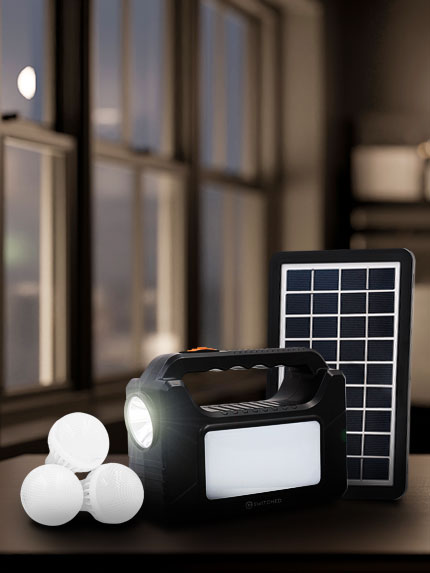Which Alternative Power Supply Is Ideal For You
Deciding between an inverter, generator, power station, UPS (Uninterruptible Power Supply), or power bank depends on your specific needs and circumstances. Each device serves a different purpose and has unique advantages and limitations. Here’s a breakdown to help you make an informed choice:
- Inverter: An inverter converts DC (direct current) power from a battery into AC (alternating current) power, suitable for running household appliances during power outages. Inverters are typically installed as part of a solar power system or connected to a car battery for portable use. They are ideal for providing backup power for short durations and powering small electronic devices.
- Generator: Generators produce electrical power by burning fuel, such as gasoline, diesel, or propane. They are capable of providing continuous power for an extended period, making them suitable for powering appliances, tools, and entire households during outages or in remote locations without access to grid electricity. However, generators can be noisy, require fuel, and emit exhaust fumes.
- Power Station: A power station, also known as a portable power station or power bank, is a compact device that stores electrical energy for on-the-go use. These devices typically feature multiple outlets, USB ports, and often include built-in inverters and batteries. Power stations are convenient for camping, outdoor activities, and charging small electronic devices like smartphones, laptops, and lights.
- UPS (Uninterruptible Power Supply): A UPS is designed to provide backup power to critical equipment, such as computers, servers, and networking devices, in the event of a power outage or voltage fluctuations. UPS units use batteries to instantly switch to battery power when the main power source fails, ensuring uninterrupted operation and protecting against data loss or equipment damage.
- Power Bank: Power banks are portable batteries designed to charge smartphones, tablets, cameras, and other USB-powered devices on the go. They are compact, lightweight, and convenient for travel, emergencies, or situations where access to electrical outlets is limited. However, power banks have limited capacity and are not suitable for powering larger devices or appliances.
- Consider Power Needs: Determine the power requirements of the devices you intend to power or charge. For small electronics and short-term backup, a power bank or portable power station may suffice. For larger appliances and longer durations, consider an inverter, generator, or UPS.
- Duration of Use: Evaluate how long you need backup power. Generators are suitable for extended use, while power banks and portable power stations are better for shorter durations.
- Noise and Emissions: If noise and emissions are a concern, opt for quieter and cleaner options like inverters, power stations, and UPS units, especially for indoor use.
- Portability: For portable power on the go, choose a power bank or portable power station. Generators and inverters are more stationary solutions.
- Budget: Consider your budget, including upfront costs, fuel or battery replacement expenses, and ongoing maintenance.
Ultimately, the best choice depends on your specific requirements, whether it’s providing backup power during outages, powering electronics on the go, or ensuring uninterrupted operation of critical equipment. Evaluate each option based on factors like power capacity, portability, noise level, emissions, and cost to make the most suitable decision for your needs.


Comments
Add comment